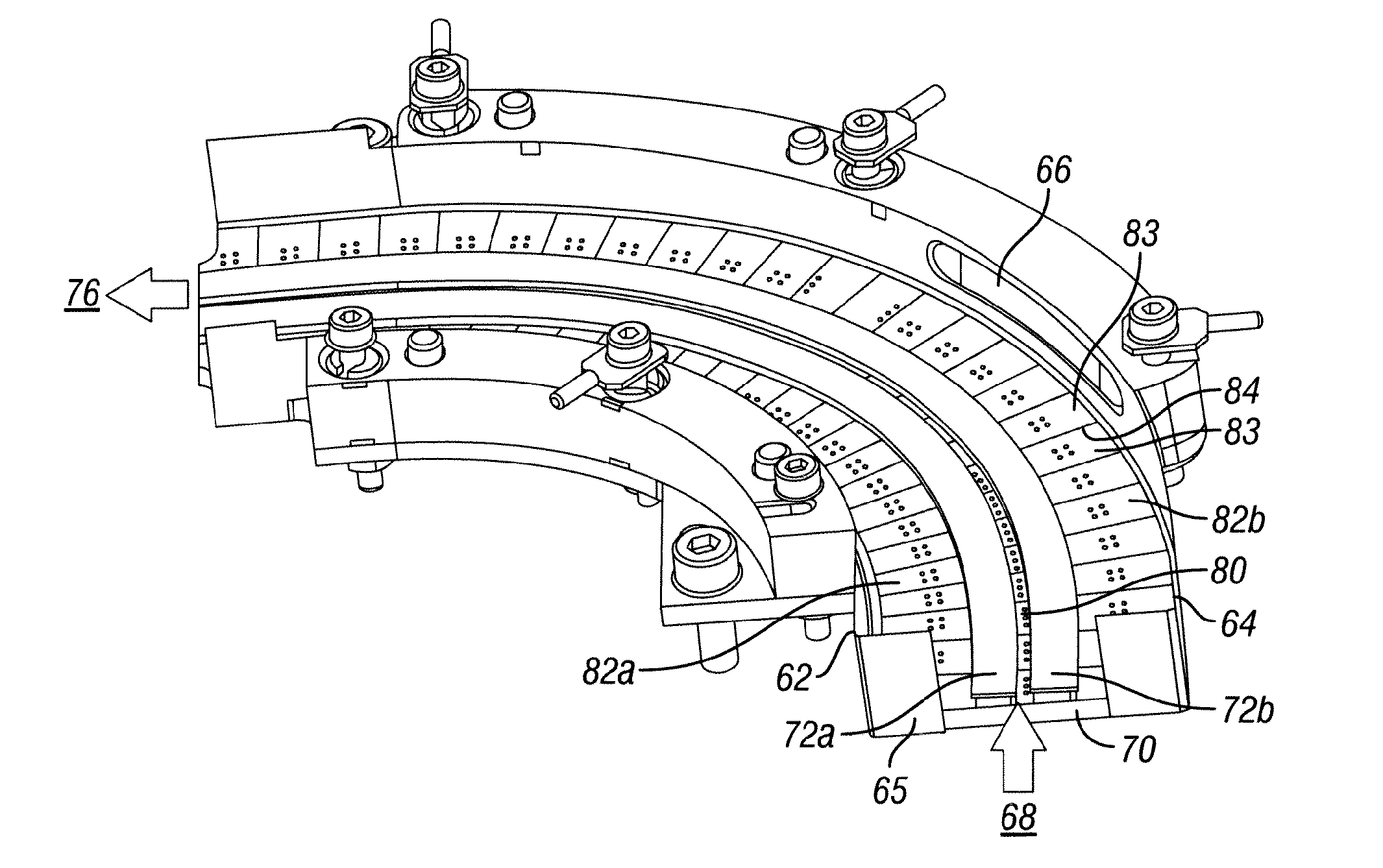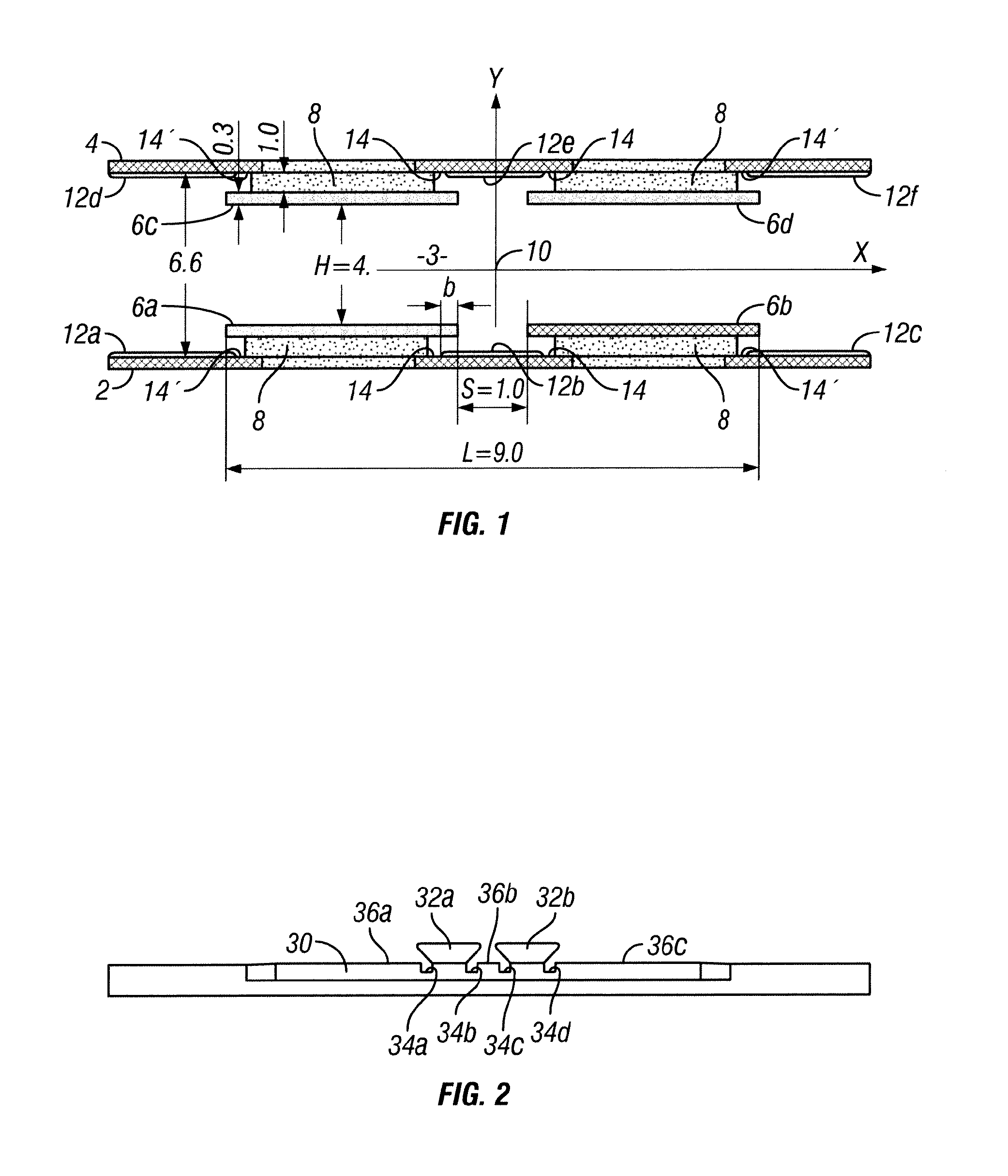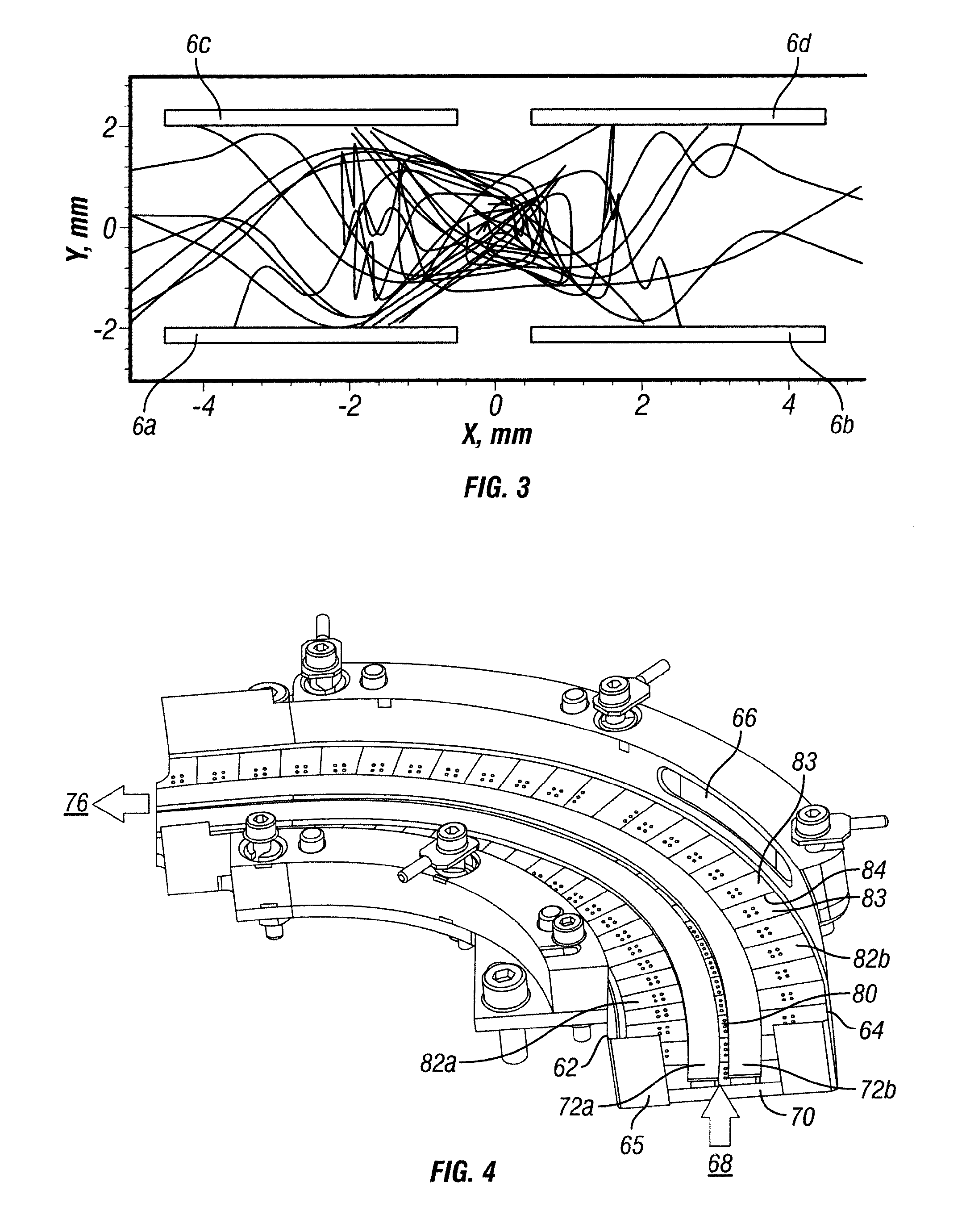Ion Guide
a technology of ion guides and ion channels, applied in the direction of electron/ion optical arrangements, particle separator tube details, instruments, etc., can solve the problems of insufficient depth of potential, inability to provide an effective way to construct ion guides, and numerous design challenges, so as to increase the tracking distance between adjacent electrodes and increase the shadowing effect of the open dielectric surfa
- Summary
- Abstract
- Description
- Claims
- Application Information
AI Technical Summary
Benefits of technology
Problems solved by technology
Method used
Image
Examples
Embodiment Construction
[0038]In order to assist further understanding of the invention, but without limiting the scope thereof, various exemplary embodiments of the invention are described below with reference to the Figures.
[0039]Referring to FIG. 1, there is shown a schematic sectional view of an embodiment of an RF ion guide according to the invention, with examples of dimensions in millimetres (mm) indicated. The ion guide comprises a first planar printed circuit board (PCB) (2) and spaced apart therefrom a second planar PCB (4). A space (3) thus exists between the PCBs. The PCBs (2) and (4) are arranged with the planes of the PCBs parallel to each other and facing each other. In the Figure, the planes of the PCBs extend perpendicular to the plane of the drawing, i.e. in the X-Z plane (the Z-axis running out of the plane of the drawing, parallel to the plane of the PCBs). The axis X is shown in the plane of the drawing, parallel to the plane of the PCBs and the axis Y is shown in the plane of the draw...
PUM
 Login to View More
Login to View More Abstract
Description
Claims
Application Information
 Login to View More
Login to View More - R&D
- Intellectual Property
- Life Sciences
- Materials
- Tech Scout
- Unparalleled Data Quality
- Higher Quality Content
- 60% Fewer Hallucinations
Browse by: Latest US Patents, China's latest patents, Technical Efficacy Thesaurus, Application Domain, Technology Topic, Popular Technical Reports.
© 2025 PatSnap. All rights reserved.Legal|Privacy policy|Modern Slavery Act Transparency Statement|Sitemap|About US| Contact US: help@patsnap.com



